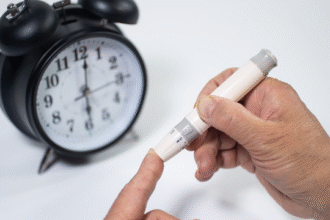Summary
Systemic lupus erythematosus (SLE) is a prototypic systemic autoimmune disease with heterogeneous clinical manifestations and a multifactorial etiology. Current evidence supports a model of genetic susceptibility, hormonal modulation, environmental triggers, and dysregulated immune responses (including innate interferon pathways and defective clearance of apoptotic material). Understanding these factors helps clinicians stratify risk, counsel patients on prevention, and choose individualized monitoring and treatment strategies.
Genetic Susceptibility
Family and population studies demonstrate a clear heritable component. First‑degree relatives have an increased risk, and concordance in monozygotic twins is substantially higher than in dizygotic twins, though incomplete penetrance is common. Multiple loci contribute to susceptibility in a polygenic fashion; key examples include HLA‑DR/DP alleles, complement component deficiencies (C1q, C4), and variants in genes involved in immune regulation (eg, IRF5, STAT4, PTPN22). Genetic testing is not diagnostic for SLE in routine practice but may inform research and, in some cases, evaluation of early or familial disease.
Hormonal and Endocrine Influences
Sex hormones clearly modulate disease expression. SLE disproportionately affects women (female:male ratio ~9:1), particularly during reproductive years. Estrogens can enhance B‑cell activation and autoantibody production, while androgens exert relative immunosuppressive effects. Clinical implications: evaluate hormonal therapies (eg, combined estrogen‑containing contraceptives and HRT) on an individual basis—use with caution in patients with active disease or high thrombotic risk—and counsel on pregnancy planning with multidisciplinary care.
Environmental Triggers
Environmental exposures interact with genetic susceptibility to precipitate clinical disease. Important, clinically relevant triggers include:
- Ultraviolet (UV) radiation: UV exposure induces keratinocyte apoptosis and increases nuclear antigen availability, commonly precipitating cutaneous flares and systemic exacerbations. Sun protection is a cornerstone of preventive counseling.
- Infections: Viral exposures, especially Epstein–Barr virus (EBV), have been associated with increased SLE risk, likely via molecular mimicry and bystander activation of autoreactive lymphocytes.
- Drugs: A distinct drug‑induced lupus syndrome is associated with agents such as hydralazine, procainamide, isoniazid, minocycline, and certain anti‑TNF agents. Drug‑induced lupus typically features antihistone antibodies and resolves with drug cessation, but clinicians should monitor for organ involvement.
- Smoking and occupational exposures: Tobacco use increases disease activity and reduces response to therapy; silica exposure has been linked to heightened risk.
Immunologic Mechanisms
The transition from tolerance to autoimmunity in SLE involves several interacting processes: impaired clearance of apoptotic cells, increased presentation of nuclear antigens, loss of B‑cell tolerance with autoantibody production (anti‑nuclear antibodies, anti‑dsDNA, anti‑Sm), and an activated type I interferon signature that amplifies innate and adaptive immune responses. Complement consumption (low C3/C4) often accompanies active immune complex disease and is useful as a biomarker for monitoring.
Clinical and Practical Implications
- Risk assessment and counseling: Patients with family history, known complement deficiencies, or prior photosensitive rashes warrant closer surveillance. Emphasize rigorous photoprotection, smoking cessation, and prompt evaluation of infections.
- Medication review: Evaluate current and prior drug exposures; consider drug‑induced lupus in appropriate clinical contexts and discontinue the offending agent when possible.
- Reproductive health: Discuss contraception and pregnancy planning proactively; coordinate care with rheumatology and obstetrics for patients with active disease or antiphospholipid antibodies.
- Monitoring: Use serologies (ANA, anti‑dsDNA), complement levels, and clinical indices (eg, SLEDAI) to track activity. Urinalysis and renal function tests are essential to detect early nephritis.
Prognosis and Prevention
Survival has improved markedly with better diagnostics, immunosuppressive regimens, and supportive care—current five‑year survival exceeds 90% in many settings. Preventive measures (sun protection, vaccination, control of cardiovascular risk factors, and avoidance of smoking) and early treatment of flares reduce morbidity. For patients at high risk of drug‑induced disease or with modifiable exposures, removal of the trigger often attenuates disease progression.
Takeaway for Clinicians
SLE is a multifactorial disease where genetics, hormones, environment, and immune dysregulation converge. Clinicians should integrate risk‑factor modification, exposure avoidance, careful medication review, and targeted monitoring into routine care to reduce flares and long‑term organ damage.







